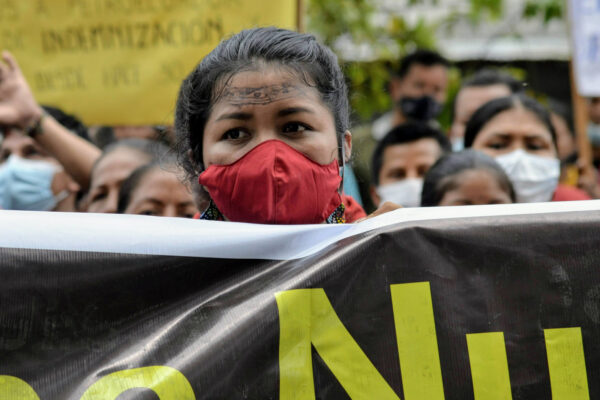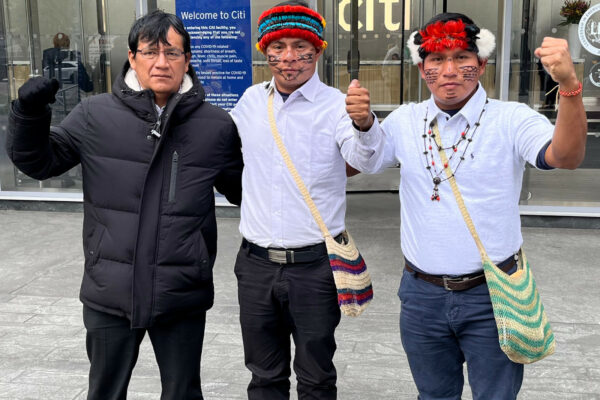La Paz, Bolivia – President Evo Morales said Friday that he was scrapping plans to build a highway through a nature reserve in Bolivia’s jungle lowlands, bowing to public pressure after a two-month protest march by Amazon Indians.
Morales did not abandon the idea of a highway through Bolivia linking Brazil with the Pacific coast, but said it would no longer cut through the pristine Isiboro-Secure Indigenous Territory National Park, or TIPNIS.
“And so the matter is resolved,” Morales told reporters. “For me, this is called governing by obeying the people.”
More than 100 protesters remained camped in front of the presidential palace Friday, two days after activists ended their trek from the Amazon reserve to La Paz, the world’s highest capital.
The march galvanized opposition to the Brazilian-funded highway and highlighted claims that Morales – an Aymara – has favored Bolivia’s majority Aymara and Quechua highland Indians over indigenous groups from the country’s lowland jungle.
Bolivia’s leftist president said he would veto a law passed last week that green-lighted the highway as originally proposed. He said he would insist it be amended to declare the reserve off limits to the highway as well as to the settlement by colonists.
The 15,000 Indians who inhabit the reserve fear encroachment by coca growers and other settlers, while the highway’s supporters argue it is needed to promote the development of Bolivia’s poorer regions.
Morales’ popularity plunged after he insisted on the route through TIPNIS and was further battered when police used tear gas and truncheons Sept. 25 to try to break up the march.
The police crackdown backfired. The defense minister quit in protest and the interior minister resigned.
Bolivians harangued Morales for the use of force against peaceful protesters and for allegedly betraying his credentials as an environmentalist and champion of Bolivia’s long downtrodden indigenous majority.
Critics were also suspicious of Morales announcement during the ensuing uproar that he would leave it to residents of the two affected states, Beni and Cochabamba, to decide the highway’s fate at the ballot box. Cochabamba is more populous and home to coca growers who are Morales’ core constituency. Some have already encroached on TIPNIS.
Protest leader Fernando Vargas responded cautiously Friday to Morales’ announcement.
“It’s a good signal, but we need to talk with the president and analyze several pending topics,” Vargas told reporters before an afternoon meeting with Morales.
Morales, who grew up poor, championed a new constitution in 2010 that declared Bolivia a plurinational state and granted its 36 indigenous groups an as yet ill-defined autonomy.
In recent months, however, Bolivia’s first indigenous president has stumbled badly in the art of compromise.
The president, who was himself beaten by U.S.-funded police as a young activist in a coca growers union, first won the presidency in December 2005 in large part because of his association with long marginalized social groups.
Nearly six years and one landslide re-election later, however, he has been forced to weigh development against environmental protection.













